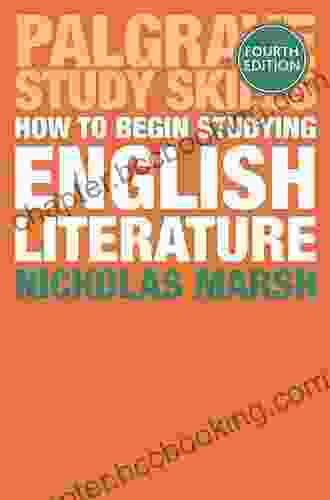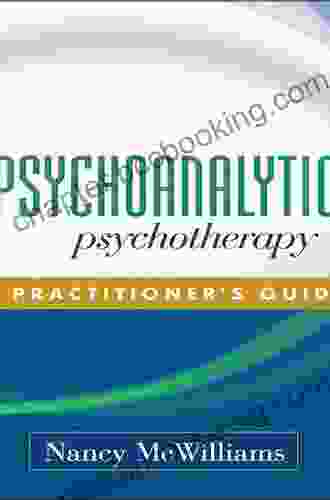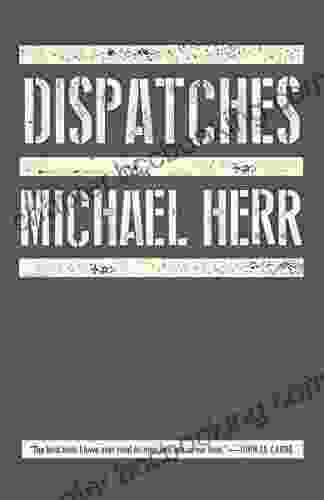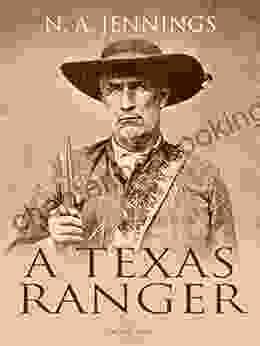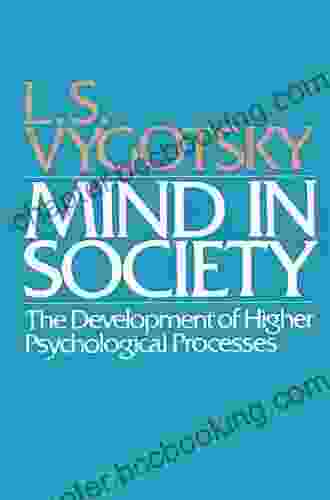Unveiling the Secrets of Literary Analysis: A Comprehensive Guide to Studying English Literature

Embark on an enchanting journey into the realm of English literature, where words dance upon the page and stories unfold with profound beauty. Studying literature is not merely about memorizing plot summaries or analyzing characters; it's about delving into the depths of human experience, exploring the complexities of language, and unraveling the mysteries that lie within the written word.
In this comprehensive guide, we will equip you with the tools and techniques necessary to unlock the secrets of literary analysis. Whether you are a student preparing for exams or a curious reader seeking deeper insights, this guide will empower you to engage with literature on a transformative level.
4.5 out of 5
| Language | : | English |
| File size | : | 1061 KB |
| Text-to-Speech | : | Enabled |
| Screen Reader | : | Supported |
| Enhanced typesetting | : | Enabled |
| Print length | : | 184 pages |
Chapter 1: The Art of Close Reading
The cornerstone of literary analysis is the ability to read closely and attentively. This involves examining every word, phrase, and sentence with meticulous care, paying attention to the nuances of language and the interplay of ideas.
Close reading allows you to uncover hidden meanings, identify literary devices, and trace the development of themes and characters. It is through close reading that you truly begin to understand the writer's craft and the complexities of the literary text.
Chapter 2: Understanding Literary Elements
English literature is a rich tapestry of literary elements, each contributing to the overall impact and significance of the work. These elements include:
- Plot: The sequence of events that drive the story
- Character: The individuals whose actions and interactions shape the plot
- Setting: The time and place in which the story unfolds
- Theme: The central message or idea that the work conveys
- Figurative language: The use of language to create vivid images, evoke emotions, or convey hidden meanings
- Symbolism: The use of objects, characters, or events to represent something else
By understanding these literary elements, you gain a deeper appreciation for the writer's techniques and the multifaceted nature of the text.
Chapter 3: Analyzing Literary Devices
Authors employ a wide range of literary devices to enhance the impact and meaning of their work. These devices include:
- Imagery: The use of words to create vivid mental pictures
- Metaphor: The comparison of two unlike things without using "like" or "as"
- Simile: The comparison of two unlike things using "like" or "as"
- Personification: Giving human qualities to nonhuman things
- Foreshadowing: Providing hints about events that will occur later in the story
- Irony: A contrast between what is expected and what actually happens
By identifying and analyzing literary devices, you gain insights into the author's style, purpose, and message.
Chapter 4: Interpreting Themes and Meanings
Every literary work conveys a theme or central message. Themes can be explicit or implicit, and they often explore universal human experiences such as love, loss, identity, and the search for meaning.
To interpret themes, you need to consider the following:
- The events and actions of the story
- The characters' motivations and conflicts
- The use of symbolism and literary devices
- The historical and cultural context of the work
By interpreting themes, you gain a deeper understanding of the author's worldview and the significance of the work.
Chapter 5: Engaging with Literary Criticism
Literary criticism is a valuable tool for enhancing your understanding of literature. Critics offer diverse perspectives on literary works, providing insights into their meaning, value, and relevance.
There are many different schools of literary criticism, including:
- Formalist criticism: Focuses on the text itself, analyzing its structure, language, and literary devices
- Marxist criticism: Examines the work in relation to its social and economic context
- Feminist criticism: Explores issues of gender, power, and representation
- Postcolonial criticism: Analyzes the effects of colonialism and imperialism on literature
By engaging with literary criticism, you gain a broader understanding of the work and its place within the literary landscape.
Chapter 6: Writing about Literature
The ability to write effectively about literature is a crucial skill for students and scholars alike. Writing about literature involves analyzing the text, interpreting its meaning, and presenting your ideas clearly and persuasively.
When writing about literature, consider the following:
- Choose a focused topic: Identify a specific aspect of the work that you want to explore
- Conduct thorough research: Gather evidence from the text and from secondary sources
- Develop a clear thesis statement: State the main argument of your essay
- Organize your essay logically: Divide your essay into paragraphs that support your thesis
- Use specific examples: Support your arguments with evidence from the text
- Proofread carefully: Ensure that your essay is free of errors in grammar, spelling, and punctuation
By following these steps, you can produce well-written essays that demonstrate your understanding of literature and your ability to communicate your ideas effectively.
Studying English literature is a rewarding and transformative experience that enriches our understanding of ourselves, the world around us, and the human condition. This guide has provided you with a comprehensive overview of the key concepts and techniques involved in literary analysis.
Remember, the journey into literature is an ongoing one. As you read, analyze, and engage with literary works, your understanding will deepen, and your appreciation for the power of words will grow.
About Bloomsbury Study Skills
Bloomsbury Study Skills is a leading provider of educational resources for students and lifelong learners. Our books, online courses, and apps offer expert guidance and support on a wide range of academic subjects, including English literature.
Whether you are a student preparing for exams or a curious reader seeking deeper insights, Bloomsbury Study Skills has the resources you need to succeed.
4.5 out of 5
| Language | : | English |
| File size | : | 1061 KB |
| Text-to-Speech | : | Enabled |
| Screen Reader | : | Supported |
| Enhanced typesetting | : | Enabled |
| Print length | : | 184 pages |
Do you want to contribute by writing guest posts on this blog?
Please contact us and send us a resume of previous articles that you have written.
 Book
Book Novel
Novel Page
Page Chapter
Chapter Text
Text Story
Story Genre
Genre Reader
Reader Library
Library Paperback
Paperback E-book
E-book Magazine
Magazine Newspaper
Newspaper Paragraph
Paragraph Sentence
Sentence Bookmark
Bookmark Shelf
Shelf Glossary
Glossary Bibliography
Bibliography Foreword
Foreword Preface
Preface Synopsis
Synopsis Annotation
Annotation Footnote
Footnote Manuscript
Manuscript Scroll
Scroll Codex
Codex Tome
Tome Bestseller
Bestseller Classics
Classics Library card
Library card Narrative
Narrative Biography
Biography Autobiography
Autobiography Memoir
Memoir Reference
Reference Encyclopedia
Encyclopedia Michael Harkins
Michael Harkins Samuel Leach
Samuel Leach Nancy Carter Crump
Nancy Carter Crump Paul Greenberg
Paul Greenberg Sam Maggs
Sam Maggs Mike Markel
Mike Markel Michael Hodgson
Michael Hodgson Nathaniel Deutsch
Nathaniel Deutsch Suzette Riddick
Suzette Riddick Mizuho Kusanagi
Mizuho Kusanagi Patrick K O Donnell
Patrick K O Donnell Mike Kraus
Mike Kraus Tim Robinson
Tim Robinson Peter Paret
Peter Paret Michael Kusugak
Michael Kusugak Sofi Thanhauser
Sofi Thanhauser Michele Welton
Michele Welton Mike Konczal
Mike Konczal Michael Archer
Michael Archer Tom Chesshyre
Tom Chesshyre
Light bulbAdvertise smarter! Our strategic ad space ensures maximum exposure. Reserve your spot today!

 Cody RussellSenior Friendly Touring The Cruise Ports: Your Essential Guide to Exploring...
Cody RussellSenior Friendly Touring The Cruise Ports: Your Essential Guide to Exploring... Alexandre DumasFollow ·19.2k
Alexandre DumasFollow ·19.2k Dean CoxFollow ·3.7k
Dean CoxFollow ·3.7k Rubén DaríoFollow ·15.2k
Rubén DaríoFollow ·15.2k Michael CrichtonFollow ·6.3k
Michael CrichtonFollow ·6.3k Junichiro TanizakiFollow ·8.6k
Junichiro TanizakiFollow ·8.6k Isaiah PriceFollow ·14.6k
Isaiah PriceFollow ·14.6k Ernest PowellFollow ·15.5k
Ernest PowellFollow ·15.5k Philip BellFollow ·6.8k
Philip BellFollow ·6.8k
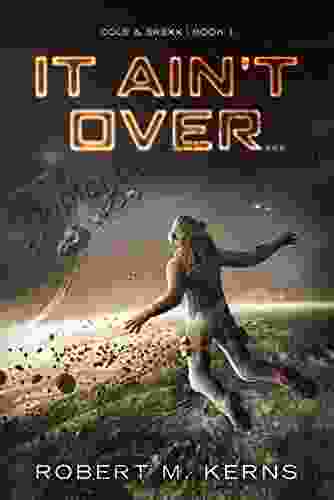
 Trevor Bell
Trevor BellUncover the Thrilling Mystery in "It Ain't Over, Cole...
Prepare yourself...
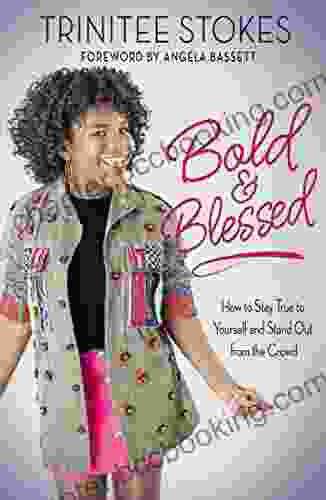
 Garrett Bell
Garrett BellHow to Stay True to Yourself and Stand Out From the Crowd
In a world that...
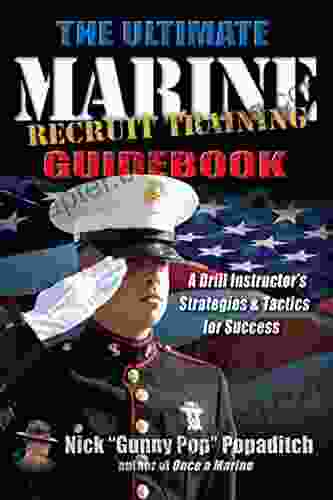
 Dennis Hayes
Dennis HayesDrill Instructor Strategies And Tactics For Success
Unleash Your Inner Warrior and Conquer...

 Guy Powell
Guy Powell101 Awesome Women Who Changed Our World: A Celebration of...
Throughout history,...
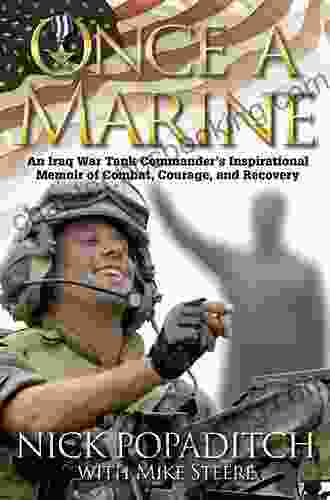
 Ashton Reed
Ashton ReedAn Iraq War Tank Commander's Inspirational Memoir of...
When he was just 19 years old, John Q....
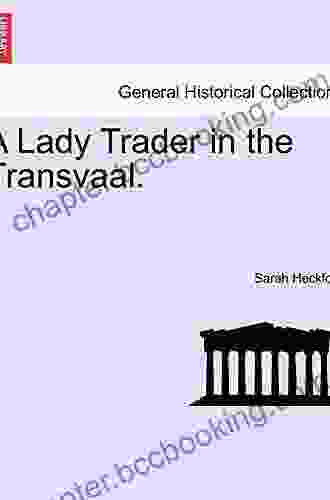
 Dean Cox
Dean CoxLady Trader in the Transvaal: A Literary Safari through a...
Prologue: A Journey into the...
4.5 out of 5
| Language | : | English |
| File size | : | 1061 KB |
| Text-to-Speech | : | Enabled |
| Screen Reader | : | Supported |
| Enhanced typesetting | : | Enabled |
| Print length | : | 184 pages |


